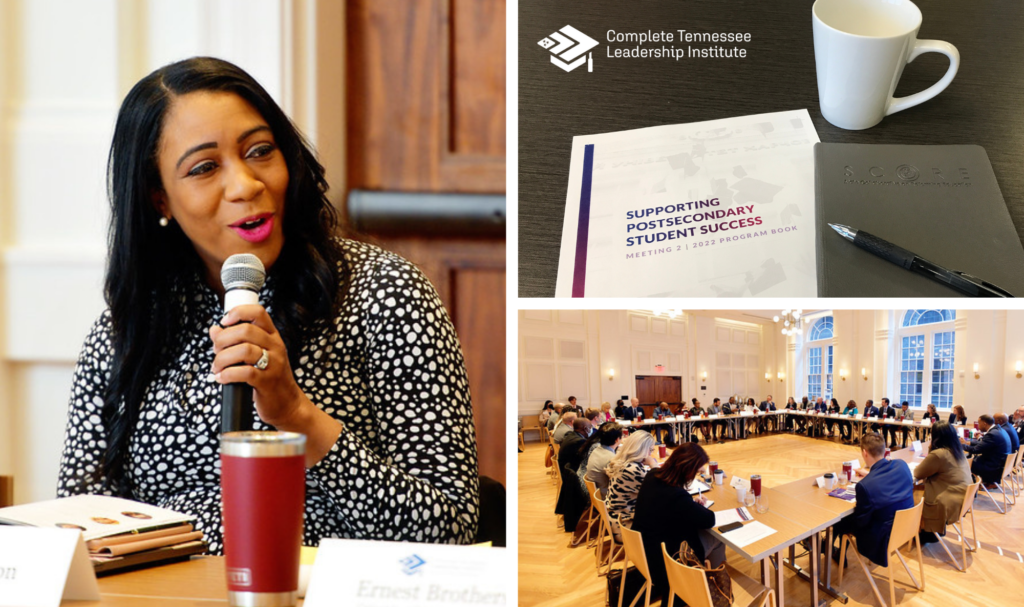
Aristotle once said, “the more you know, the more you know you don’t know.” And that precisely describes my experience in the Complete Tennessee Leadership Institute (CTLI) cohort of 2021-2022.
As a seasoned higher education professional, I was excited about the opportunity to work alongside other education advocates through CTLI to uncover creative ways to increase postsecondary credential attainment in Tennessee. And from our very first meeting together, I was both inspired and informed by my cohort colleagues and the conversations we engaged in.
At the first convening, we focused on the “Tennessee Higher Education Landscape and Equity in Access.” We explored the varied postsecondary institutions in Tennessee; addressed access gaps for Black, Hispanic, and Indigenous students; tackled higher education affordability; and looked at resources available to students. Going into this session, I considered myself well informed on issues related to students’ needs and equity in higher education. However, this session was eye-opening.
Often, we work in our respective educational settings and institutions without fully leveraging the connectionsand opportunities of attainment for Tennessee students. From the Tennessee Colleges of Applied Technology (TCATs) to two- and four-year institutions, Tennessee has wide-ranging educational passages. Nevertheless, it is imperative that educational institutions partner and align themselves together and go beyond the noted respective opportunities to explore the diverse needs of students.
After the first convening, I had a better understanding of the distinct and diverse wraparound services and resources necessary to create a culture of equity and ensure all students have access to the tools they need to succeed. Wraparound services — support, academic and supplemental services like academic guidance/counseling, tutoring, mental health counseling, crisis intervention, career counseling, childcare or transportation assistance — have been shown to be especially valuable for low-income, Black, Latino, and immigrant students. I realized that to really make an impact, I needed to better understand the needs of students, not only those attending a four-year institution such as the one I serve but also students at TCATs and community colleges.
By the end of our third convening, I had an intense appreciation for ensuring that our postsecondary institutions are “student ready.” To make that happen, partnerships must start with our K-12 colleagues. Creating the continuum for postsecondary attainment means starting as early as kindergarten with career awareness, and educators at every level must make certain they are aligned to prepare students for the workforce. A critical, noteworthy takeaway is that “both K-12 and postsecondary leaders must be involved in the conversation as both sectors are critical to creating pipelines of prepared workers invested in their communities” (Complete Tennessee Leadership Institute, 2022). Such partnerships are essential to improving and continuing the success of our future leaders, workforce, and the state of Tennessee.
It is true, the more knowledge you acquire, the more you realize what you do not know. However, the CTLI experience has given me a deeper appreciation for who I now know and the relationships fostered with them through this group. As a participant in the Complete Tennessee Leadership Institute, I have been afforded the occasion to forge relationships with my colleagues to transform the educational prospects of Tennessee students. It’s a prospect that is at once an extraordinary opportunity … and an awesome responsibility.
Dr. Alexis Gatson Heaston is assistant professor of public health, health administration, and health sciences at Tennessee State University.
Editor’s note: Nominations are now open for the 2022-23 cohort of the Complete Tennessee Leadership Institute.
Read More:
